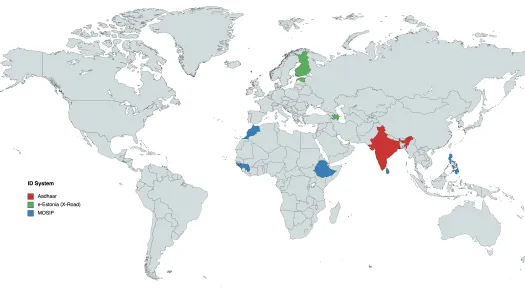
A Guide to Litigating Identity Systems: Paths forward
This section discusses identity systems’ implications for the rule of law, the role of international human rights law, and considerations of gender identity, which are often absent from existing jurisprudence.
Report
Post date
11th September 2020

Rather than providing a list of arguments, as is the case in the other sections of this guide, the fifth section provides a general overview describing the absence of consideration of these themes in existing jurisprudence and the reasons why these themes warrant future consideration including identity systems’ implications for the rule of law, the role of international human rights law, and considerations of gender identity.
- Democracy, the Rule of Law and Access to Justice: This analysis of the jurisprudence on identity systems leads to the conclusion that the manner in which identity systems are introduced and designed pose serious threats to democracy, the rule of law, and access to justice. However, the adoption of identity systems is rarely preceded by rigorous legislative debates and democratic deliberation.
- Increased Attention to the Rights of Sexual Minorities: The matching of identity is crucial for the realization of all rights that are dependent on proving identity. Therefore, it is important to ensure that the rights of trans persons and gender diverse persons are not violated due to a mismatch between their self-identified gender and their sex as recorded in the identity system.
- Increased Engagement with International Human Rights Law: international human rights norms and standards can create stronger protection for existing domestic rights and also influence the “development of transformative national-level jurisprudence and law and policy reform.”
Learn more
Related learning resources



